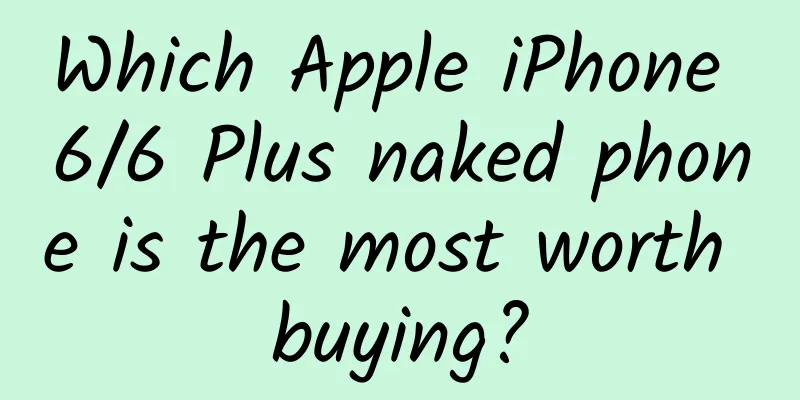Trouble comes from "sweetness"? WHO's new guidelines take a tough stance on sugar substitutes

|
Existing evidence suggests that sugar substitutes not only cannot help you lose weight, but may also bring other health risks. If you want to be healthy, stay away from sugar substitutes. Written by Li Changqing (Doctor of Medicine, practicing physician in the United States), Wang Chenguang (Doctor of Biology, former professor of Peking Union Medical College) On May 15, the World Health Organization (WHO) issued important health guidelines on sugar substitutes, clearly not recommending the use of sugar substitutes to control weight, nor recommending its use as other health care measures. This move by the WHO was seen by some in the health field as a death sentence for sugar substitutes. Echoing the incident two years ago when Ronaldo pushed carbonated drinks aside at a press conference, this incident once again drew widespread attention to the relationship between sugar substitutes and human health. Sugar substitutes refer specifically to non-sugar sweeteners that contain almost no calories. Its products include various beverages including sugar-free cola, as well as various supplementary foods with sugar substitutes as additives. It has a huge market. Although it is rare to see manufacturers openly promoting that sugar substitutes can help with weight loss and disease prevention, they have done a lot of things both in front of and behind the scenes: in front of the scenes, they mainly link sugar substitutes with health through various advertisements and sponsorship of sports events (this is already a routine operation in the business world); behind the scenes, they fund research that supports their health benefits and cover up research reports that are unfavorable to their products. All these actions are undoubtedly aimed at selling more products. To a certain extent, their strategy is successful. The US sugar substitute market is increasing by about $100 million each year, and a lot of capital in China is also eager to try to promote this upward trend. This WHO guideline is likely to affect the pockets and jobs of many people. As ordinary people, most people do not care about the pockets and jobs of the rich, and are more concerned about their own health. So what is the impact of sugar substitutes on human health? In the face of this WHO recommendation, what should those who have been fond of sugar substitutes for many years and have developed the habit of using sugar substitute products do? Sweetness and appetite Sweeter foods tend to contain more free sugars, including fructose, sucrose, glucose, etc. Sweetness not only means that the food contains more calories, but also stimulates the appetite of most people, making them eat more to get more calories. This has gradually become a health problem in modern society with abundant food, and diseases related to excessive calorie intake have become a heavy burden on individuals, families and society. As a substitute for free sugars, sugar substitutes are given the beautiful hope of satisfying taste cravings and reducing health risks, making them popular among people trying to lose weight. This good wish is based on people's linear thinking, and the actual effect needs to be scientifically evaluated. The fact is that the sales of sugar substitutes are rising year by year, and the obesity rate and the incidence of various diet-related diseases are also increasing. The WHO guidelines are mainly based on a systematic review published in April last year, which includes the important research results on the health effects of sugar substitutes around the world so far. Analyzing these studies, at least two expectations of sugar substitutes have been dashed: one is to reduce health risks by replacing caloric sugar with sugar substitutes - many studies have shown that it is useless; the other is to satisfy the desire for sweetness without increasing health risks - studies have shown that long-term intake of sugar substitutes will also increase health risks such as obesity and diabetes, and increase all-cause mortality. The conclusion of the new WHO guidelines: If you are at high risk of diabetes, such as being obese, do not expect to reduce your risk of diabetes by using sugar substitutes. Some studies suggest that using sugar substitutes may lead to more weight gain. If you are not at high risk, do not try to use sugar substitutes to prevent disease. Not only is it ineffective, it may also increase the risk of cardiovascular disease and stroke. If you want to be healthy, you should try to eat unsweetened food and drink unsweetened beverages, such as plain water. At first glance, it would seem that consuming calorie-free sugar substitutes should help you lose weight better than calorie-containing sugars. But the reality is more complicated than that. Whether or not you can lose weight ultimately depends on the body's energy intake and expenditure, that is, total amount control: if the intake is greater than the expenditure, the body will gain weight; otherwise, the body will lose weight. Sugar substitutes themselves do not contain calories, but this does not mean that sugar substitutes can reduce energy intake more than a diet containing calories made of free sugars. For example, for those who love drinking, the increased intake from drinking two glasses of wine per meal cannot be simply calculated by the calories contained in the two glasses of wine. The meals that are eaten more or less due to drinking must also be calculated. Many studies have shown that for most people, sugar substitutes not only do not reduce energy intake, but can also increase appetite, whet their appetite, and thus increase energy intake. Small-scale human trials have evaluated whether the sweetener aspartame increases hunger. Subjects were given different levels of aspartame and compared with chewing gum without sweeteners. The results showed that chewing gum containing sugar substitutes increased the hunger of the subjects. Another study on young people drinking beverages containing aspartame showed that sweetened beverages generally have a certain stimulating effect on appetite. Evolution has determined our love for sweetness. During the long process of evolution, the human brain has gradually developed a dependence on sugar, which can activate areas of the brain related to reward and appetite, leading to an increase in appetite. Even if sugar substitutes are added to food or drinks, the brain will associate them with high-calorie foods through sweetness, because high-sugar foods are usually high-energy foods. After consuming sugar substitutes, the brain may expect to obtain more energy, thereby increasing appetite. However, not everyone reacts the same way to sugar substitutes. Individuals’ (and certain groups’) living habits, dietary structure, and psychological factors may also affect the relationship between sugar substitutes and appetite. Perhaps related to this, some studies have not found that consuming sugar substitutes leads to increased appetite. Therefore, if we use stricter standards, then it can be said that there is no clear conclusion on the effect of sugar substitutes on appetite. The real situation may be that for some people, consuming sugar substitutes will increase their appetite, while for others, it may have no obvious effect. But overall, this does not affect the conclusion that "sugar substitutes do not help lose weight." Even if you don't consider the increase in appetite, there is another problem with sugar substitutes, that is, their "no calories" will bring psychological and behavioral effects: if a person believes in the health effects of sugar substitute foods and beverages, he or she may relax his or her vigilance against other unhealthy foods and lifestyles, providing an excuse for eating high-calorie foods, sitting for long periods of time, and not exercising. More direct problem: sugar substitutes themselves are not necessarily safe Not only do sugar substitutes fail to achieve the desired effect in terms of weight loss, many small-scale studies have also suggested potential health risks of sugar substitutes, including the risk of cancer, kidney disease, and cardiovascular and cerebrovascular diseases. A large study has found a potential link between artificial sweeteners and an increased risk of stroke, heart attack and related cardiovascular problems. This large-scale epidemiological study conducted in France aims to clarify the relationship between sugar substitutes and heart health. The study subjects exceeded 100,000, most of whom were women. The long-term follow-up results showed that sugar substitute intake increased the risk of heart disease by 9% and the risk of stroke by 18%. In recent years, there has been a so-called healthy diet trend in the choice of sweeteners. That is to consume naturally occurring, low-calorie or calorie-free sweeteners, such as xylitol and erythritol. This trend caters to those who advocate "naturalness". Can this trend withstand scientific scrutiny? In February 2023, a study published in the journal Nature Medicine revealed the link between erythritol and cardiovascular disease. Erythritol exists naturally and is found in some fruits and vegetables, but in relatively low amounts. The human body can also synthesize it. But when erythritol is added to food and drinks as a sweetener, the content is usually thousands of times higher than that naturally present in food. Drinking beverages containing erythritol can increase the level of erythritol in the blood by thousands of times, and can maintain high concentrations for a long time. This study focused on the relationship between erythritol and heart attacks and strokes. By following up the health status of more than 4,000 people for three years, it was found that erythritol intake was associated with the risk of cardiovascular disease. The team further studied the reasons why erythritol increases health risks and found that erythritol can increase the incidence of fatal and non-fatal cardiovascular and cerebrovascular events by increasing the sensitivity of platelets to blood coagulation, accelerating the formation of blood clots and arterial blockage in experimental animals. In addition, studies have also found that the intake of sugar substitutes is related to metabolic problems. Some studies have found that long-term intake of large amounts of sugar substitutes may interfere with the body's metabolic process, leading to insulin resistance, increased risk of diabetes, and problems associated with metabolic syndrome. Other studies have found that long-term intake of certain sugar substitutes may have adverse effects on intestinal microbiota, disrupt the normal balance of intestinal flora, and thus have a negative impact on health. The conclusion is clear at this point: if you want to be healthy, stay away from sugar substitutes. Decoding the Voice of Counterattack It should be clear that the conclusion of the World Health Organization is not new to those in the field, and this guideline does not provide new facts, but is a summary of existing data. Many systematic reviews have reached similar conclusions before. Like any scientific conclusion, every time a study on sugar substitutes is published, there will be both supporters and opponents. Comparing the articles on both sides can help you distinguish right from wrong. In general, the data and logic are on the side of the harmfulness of sugar substitutes, and the relevant researchers are relatively independent; while the scientists who support sugar substitutes find it more difficult to justify themselves. For example, an endocrinologist in Michigan once wrote an article interpreting all the research on sugar substitutes being detrimental to weight loss and diabetes prevention as unreliable, but at the same time he supported the conclusion that sugar substitutes have adverse effects on cardiovascular and cerebrovascular diseases. Among the researchers who wrote letters to magazines to refute the adverse cardiovascular effects of sugar substitutes, some were found to be funded by sugar substitute manufacturers. There are even worse behaviors by businesses. According to a report published in the British Journal of Public Health Policy in 2019, researchers at the University of Cambridge found that Coca-Cola had signed agreements with several research institutions and universities, allowing Coca-Cola to review unpublished research in advance and cover up certain data that was not conducive to the sales of its products. The universities involved include Louisiana State University, University of Southern California, University of Toronto and University of Washington. After the WHO guidelines were released, the Calorie Control Council, a joint spokesperson for sugar substitute manufacturers, quickly expressed strong opposition. The organization's official statement cited a scientific recommendation issued by the American Heart Association in 2018 to support sugar substitute beverages. However, in that recommendation, relevant experts stated that for those who are used to drinking sugary drinks, if it is not easy to stick to drinking water at the beginning, they can consider using sugar substitute beverages, but at the same time, they also suggested that they should try to encourage drinking water instead of continuing to rely on sugar substitute beverages. The official statement also cited a systematic review published in JAMA Network Open. This review concluded that using sugar substitutes to replace sugary drinks can help lose weight; the same article also analyzed the effect of replacing sugary drinks with plain water, and the results showed that the effect of sugar substitutes replacing sugary drinks was more significant than that of plain water. How to view this unusual result? Readers may be able to get a clue from the long list of author interest declarations at the end of the paper: most of the authors received funding from sugar substitute companies and organizations, including the above-mentioned "Calorie Control Council." Will the new guidelines bring disaster to the sugar substitute industry? It can be expected that based on the authority of WHO, this guideline will inevitably have a certain impact on the sugar substitute industry; but the capital power of sugar substitutes should not be underestimated. They are familiar with how to deal with such professional guidelines, and they also have professional response teams and experience in how to eliminate the negative impact of media reports. The dullness of scientific guidelines and the obscurity of professional papers often keep the general public at a distance; and the objective retelling of the mass media is often confused by the voices that muddy the waters, and the confused public will find it difficult to see the whole story and retain their memory for a long time. In this way, the expansion and rise of the sugar substitute market is likely to continue and continue to have a negative impact on public health. Those who benefit are probably only a few individuals who listen carefully to the voice of science and discipline themselves accordingly. References 1. Health effects of the use of non-sugar sweeteners: a systematic review and meta-analysis. April 2022 (https://www.who.int/publications/i/item/9789240046429) 2. Pang MD, et al. The Impact of Artificial Sweeteners on Body Weight Control and Glucose Homeostasis. Front Nutr. 2021 Jan 7;7:598340. 3. Tordoff MG and Alleva AM. Oral stimulation with aspartame increases hunger. Physiol Behav. 1990 Mar;47(3):555-9. 4. Witkowski M., et al. The artificial sweetener erythritol and cardiovascular event risk. Nat Med. 2023 Mar;29(3):710-718. This article is supported by the Science Popularization China Starry Sky Project Produced by: China Association for Science and Technology Department of Science Popularization Producer: China Science and Technology Press Co., Ltd., Beijing Zhongke Xinghe Culture Media Co., Ltd. Special Tips 1. Go to the "Featured Column" at the bottom of the menu of the "Fanpu" WeChat public account to read a series of popular science articles on different topics. 2. Fanpu provides a function to search articles by month. Follow the official account and reply with the four-digit year + month, such as "1903", to get the article index for March 2019, and so on. Copyright statement: Personal forwarding is welcome. Any form of media or organization is not allowed to reprint or excerpt without authorization. For reprint authorization, please contact the backstage of the "Fanpu" WeChat public account. |
Recommend
3 charts to master the methods of marketing promotion and implementation planning
In marketing promotion , we can use various model...
Ice and fire, Kilimanjaro on the equator is a snowy mountain and also a volcano!
Review expert: Researcher Xu Jiandong, Director o...
Alibaba CTO Wang Jian: The era of computing economy has arrived!
Rethinking cloud computing This is the first time...
Mobile QQ 8.2.8 update: Image text extraction is easier
[[316739]] Today, Tencent QQ Android and iPhone m...
The World's Female Science and Technology Community (I): The African Drum with a Mute and a Loud Sound
Today, digital technology is no longer a luxury, ...
Product experience report of Baicizhan APP
As a learning app, Baicizhan has an unshakable po...
How Li Jiaqi and Perfect Diary use WeChat private domain traffic
The current first-line live-streaming influencers...
Why do people fall asleep as soon as they get on the bus? It turns out that this is how they are "hypnotized"!
Have you ever had this experience: when you are o...
How to locate a Tik Tok account? 3 new routines!
One writer once said: "Go deeper into the ar...
Suitcases "fall from the sky"! Don't do this, it's too dangerous!
Recently, a woman in Hangzhou, Zhejiang, placed a...
Mantu Xiaoke | Xinjiang Robin - a bird with a "heavenly voice"
In 2024, the Xinjiang Association for Science and...
Is a piece of porcelain really worth 700 million?
Ancient Chinese Porcelain A perennial favorite at...
2022 Chengdu Tea Drinking Resource Group Tea Drinking and Tasting Best
Appointment arrangements for the Chengdu tea drin...
Watchdog mechanism source code analysis
[[434595]] Preface Linux introduces Watchdog. In ...









